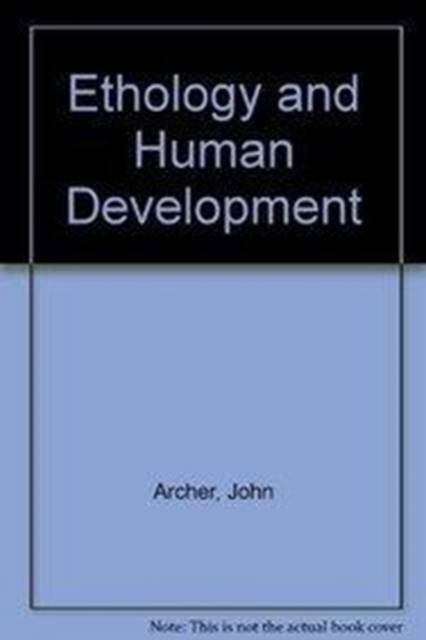
- Afhalen na 1 uur in een winkel met voorraad
- Gratis thuislevering in België vanaf € 30
- Ruim aanbod met 7 miljoen producten
- Afhalen na 1 uur in een winkel met voorraad
- Gratis thuislevering in België vanaf € 30
- Ruim aanbod met 7 miljoen producten
Zoeken
Omschrijving
The developmental origins of human behavior are often seen as having parallels with the natural world of animal behavior. Researchers in ethology, the biological study of animal behavior, have amassed an enormous body of research, but the psychological study of child development has often ignored the findings, with the notable exception of John Bowlby's use of imprinting as a basis for a novel theory of human attachment. The author of this new book, a psychologist who has carried out research in ethology, evaluates the impact of several decades of ethological work on developmental psychology. He views human development from the context of the natural world, thereby re-establishing the links, begun with Charles Darwin, between research on child development and animal behavior. Chapters summarize important research on observational methods, animal models, social processes, sociobiology, the comparative method, non-verbal communication, and mental processes.
Specificaties
Betrokkenen
- Auteur(s):
- Uitgeverij:
Inhoud
- Aantal bladzijden:
- 288
- Taal:
- Engels
- Reeks:
Eigenschappen
- Productcode (EAN):
- 9780389209966
- Verschijningsdatum:
- 31/07/1992
- Uitvoering:
- Hardcover
- Formaat:
- Genaaid
- Afmetingen:
- 152 mm x 229 mm
- Gewicht:
- 544 g

Alleen bij Standaard Boekhandel
+ 315 punten op je klantenkaart van Standaard Boekhandel
Beoordelingen
We publiceren alleen reviews die voldoen aan de voorwaarden voor reviews. Bekijk onze voorwaarden voor reviews.











